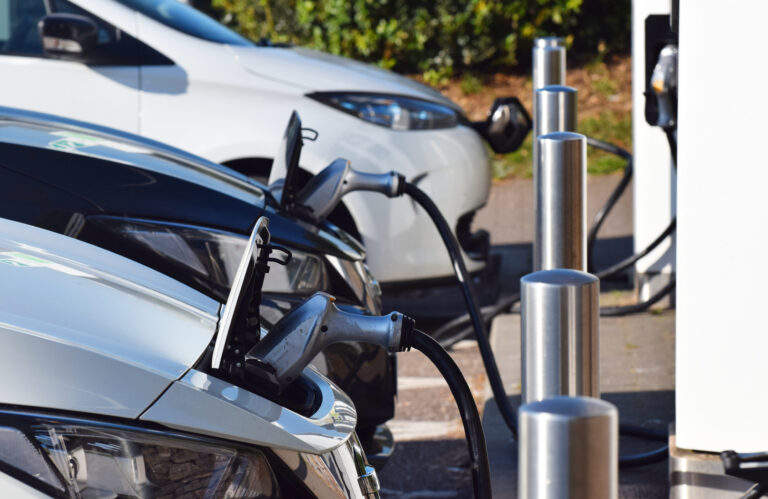The UK transport secretary has announced a £70m trial to increase the number of ultra-rapid chargepoints for electric vehicles (EVs) at motorway services.
Mark Harper laid out plans during COP28’s Transport Day in Dubai for up to 10 trial sites in England with boosted electrical network capacity future-proofed for at least 10 years, to 2035.
The funding forms part of the UK government’s rapid charging fund (RCF) and will cover a portion of the costs of upgrading the electricity grid at motorway service areas, in an effort to ensure the private sector can continue to expand the charging network.
Harper, said: “This government is on the side of drivers and working with the private sector to provide robust chargepoint infrastructure is part of our Plan for Drivers, with this announcement paving the way for more ultra-rapid chargepoints.
“This £70m pilot scheme is the starting point and sends a message to consumers and industry that we are investing wisely and rapidly to grow the future of transport in the UK.”
READ MORE: UK law changes set to simplify EV charging experience
According to the UK Department for Transport (DfT), motorway service areas are strategically important as regularly spaced stopping points along the motorway.
“Investment here addresses the need for a highly visible and dependable longer-distance charging network to support drivers and accelerate future EV purchases,” the DfT said in a statement.
The pilot, which is being delivered by National Highways, will help gather evidence to inform the design of a full fund.
Furthermore, the government announced the launch of a 10-week RCF consultation seeking views from a range of stakeholders, including chargepoint operators, motorway service area operators and electricity suppliers, on where chargers are needed most and how best to design the RCF.
CiTTi COMMENT: Why are we still on the fence about EVs?
COP28 also saw the launch of the world-first global zero-emission vehicle (ZEV) transition roadmap, designed to improve understanding and accessibility around the international push to decarbonise road travel and to more clearly lay out the financing available to developing economies and new markets.
It commits to an annual update at future COP events, helping to map the transition to cleaner travel on a global scale.
This comes in the same week that the UK House of Commons agreed the percentage of new zero-emission cars and vans that manufacturers will be required to produce each year up to 2030.
According to government figures, the UK’s charging infrastructure has grown 42% on last year – a rate that reportedly puts the UK on course to meeting the required 300,000 chargers by 2030.
Achievements and innovations in EV charging will be celebrated at the third annual CiTTi Awards, which will be held on 26 November 2024 at the De Vere Grand Connaught Rooms in London. Nominations officially open in March 2024. Visit www.cittiawards.co.uk to learn more about this unmissable event for the UK’s transportation sector.





